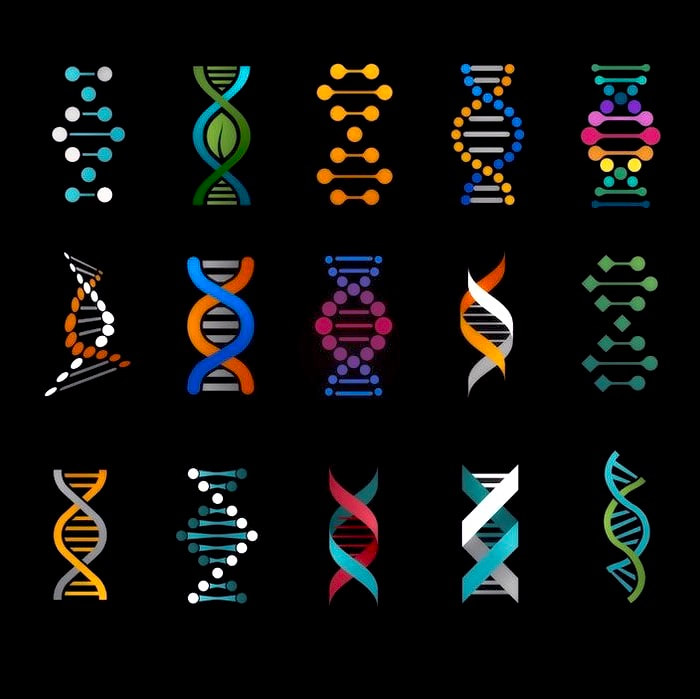|
2/20/2019 A Discussion On Nutrigenomics & Epigenetics: How Your Diet & Lifestyle Determine Health Over Anything ElseRead NowWritten by Tamryn Burgess The world of healthcare is constantly changing, and it seems like there are always new diets and treatments around every corner, each one promising to be the ultimate cure. This makes sense, as we are making new discoveries every day when it comes to science and medicine. One of the things you may have heard about is using your genes to come up with more individualized treatment plans. Studying genetics to better know how to treat and prevent certain illnesses does make sense when you think about the fact that everyone is different. So if that’s the case, why should all the treatments be the same? FUELING YOUR DNA Genomics, the study of gene and DNS sequences, could help us create more individualized treatments for people. In fact, news has been released that certain blood tests could potentially have the power to reveal the type of antidepressant a person should be prescribed (1). There have also been murmurings that we could eventually be able to use viruses to change our genetic coding in order to stop certain diseases (2). While there is lots of potential for eventually being able to positively change our DNA, we can actually all take steps to prevent negative changes in our DNA. It is widely believed that your DNA cannot change - you are stuck with the genes you have. However, there are are a variety of factors, such as exposure to harmful substances or even trauma can, over a long period of time, change your DNA and the way it is expressed. This is called epigenetics. One of the biggest topics currently being studied is how the things we eat and the nutrients we receive affect our genes. This is called nutrigenomics. Nutrigenetics, on the other hand, is how our genes affect the way we respond to certain food and nutrients. These two categories go side by side and are useful in understanding genetic health. Think of nutrigenomics as general and nutrigenetics being more individualized. Maintaining genetic health is very important. Think about it - your genes are what you’re going to pass on to the future generations. So having and maintaining good genes could, quite literally, make a world of difference. One of the common misconceptions though is believing you have to get genomic testing and be a genetics expert in order to be able to support your genetic health. Testing can be helpful and definitely has its place but optimizing genetic health can be done without it by the average individual. To help you out, we’re going to list out 5 easy ways that you can support your genetic health through a holistic approach to wellness! HOW TO SUPPORT YOUR GENETIC HEALTH 1. Heal from your Trauma Believe it or not, stress can affect more than your mental and even your physical state - it can alter your genetic coding. This is especially true if you experienced serious emotional or physical trauma as a child. While the specific ramifications for not acknowledging childhood trauma is still not completely known, we do know that it does change the way our genes are copied (3). When this happens, it means that more mistakes are likely to happen in your genetic coding, which can lead to future health problems and passing down mutated genes. The best thing to do is to seek help and come to terms with your trauma. 2. Balance your B Vitamins Eating foods rich in B Vitamins helps support methylation, a function that is very important to the copying process that your DNA must constantly be undergoing. When your body has too much or too little methylation, it can lead to a variety of health concerns including fatigue, poor brain function, and even heart problems and cancer. It’s difficult to get too many B Vitamins, so eating a diet rich in B Vitamins could help you maintain healthy DNA. A few of our favorite foods rich in B Vitamins are nutritional yeast, beans, asparagus, pine nuts, whole grains, almonds, non-gmo and fermented soy, beet greens, tomatoes, avocados, carrots, and peas... To name just a few! Here is a more in-depth list. 3. Stop Using Toxic Products Exposure to certain chemicals and toxins can disrupt the DNA’s patterns, causing breaks and changing our genes. Dangerous chemicals and toxins can hide in everyday items, including your cosmetics, your cleaning supplies, your food, and even your water (4). The best things to do are to choose natural and organic products wherever you can, stop storing food in plastic and aluminum foil, and check your water for heavy metals. Heavy metals in your drinking water can be especially damaging to your genetic sequencing and to your overall health. 4. Reduce Inflammation If you have any inflammation at all, it could be changing and modifying your DNA. After all, inflammation means your body is working hard to fight something off, which means its less focused on building DNA properly. Common problems that cause inflammation include high stress, chronic infection, food intolerance, and autoimmunity. For those that struggle with keeping inflammation under control, you can try following an anti-inflammatory diet. You should also check your AA to EPA ratio, and supplement with EPA and DHA as needed in order to achieve a proper omega 3 to 6 ratio (5). 5. Exercise Ah yes, the final and most dreaded tip in this entire list - exercise! Just getting outside and moving around has been proven to have endless health benefits, and it only gets better from there. You might be wondering what this could still have to do with your genes though. But think about it - your DNA is constantly being copied and remade. If all you do is sit still, the gene-making process is likely to slow down and get lazy too. Exercising can help boost metabolism and longevity, which is a big plus (6). And the best part is, you don’t have to be a super athlete to receive all the benefits. Just do workouts that are within your own personal comfort and limits. Genetic health is very important because just like we mentioned before, your genes are what will be passed down for generations to come. But you don’t have to be a DNA expert to maintain and pass down good genes. Hopefully, with the tips that we have left you, you can be on your way to keeping your genes healthy. SOURCES
0 Comments
Leave a Reply. |
Details
|

